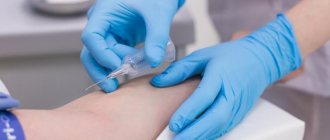Gynecologist
A visit to the gynecologist is necessary in every trimester of pregnancy.
First trimester
At 7-8 weeks, the woman finds out that she is pregnant and begins to see a gynecologist. He does an examination on a chair, measures blood pressure, pelvic size, height, weight. Conducts a survey about the presence of bad habits and chronic diseases, the onset of menstruation and sexual activity. Lists the necessary tests during pregnancy week by week.
Ask about your vitamin regimen and diet. You will have to come once every two weeks.
Second trimester
Visits to the antenatal clinic occur monthly. Referrals for routine tests and examinations are issued. From the 16th week, the doctor hears the baby’s heart beating. They measure the belly. Feel the position of the uterus.
Pregnancy monitoring by a doctor allows you to determine whether the child is developing normally. Such manipulations will be performed at every examination.
What lifestyle should a pregnant woman lead? Read here. How important is the health of the expectant mother for the health of the baby? Details in this article.
Third trimester
Examinations during pregnancy by the attending physician now take place 2 times a month. It is necessary to visit a gynecologist every 7 days from 37 weeks. The load on a pregnant woman’s body becomes quite strong; more careful control is needed. An exchange card is filled out and maternity leave is issued.
There was no official obstetrics in our country until the eighteenth century. There were only midwives and folk means of obstetrics. Princess Golitsyna changed the situation. She established a fund for the creation of a scientific school, thanks to which a manual for gynecologists appeared.
When registering
A triple test designed to study the “genetic health” of the unborn child. Blood levels of alpha-fetoprotein (AFP), human chorionic gonadotropin (CG) and unconjugated estriol (NE) are determined. Based on the deviation of the level of these substances from the norm, one can suspect some chromosomal abnormalities in the fetus (in particular, Down syndrome). Sometimes it is recommended to take this test twice, with an interval of 1-2 weeks, between the 15th and 20th weeks of pregnancy. This study is considered optional, therefore, as a rule, there is a fee.
Do not panic if the results of the “triple test” show a deviation from the norm. According to the literature, the test can give erroneous results in approximately 9.3% of cases. To clarify the result, the woman is sent for an additional examination - amniocentesis. Amniocentesis is a study of amniotic fluid, which allows you to confirm the presence or absence of chromosomal abnormalities in the fetus. The study is carried out under ultrasound control. Before this examination, the doctor should warn that in a small percentage of cases (about 1%) amniocentesis can cause a miscarriage.
In the second half of pregnancy, a woman should visit a gynecologist more often: once every 2 weeks (in the normal course of pregnancy).
Blood analysis
The doctor prescribes tests during pregnancy week by week, directing the patient to donate blood. When registering, you must do a complete blood test. At 30 weeks it will need to be repeated.
A complete blood count includes the following:
- For sugar. During pregnancy, the possibility of developing diabetes increases as the pancreas experiences increased stress.
- General analysis. The fence is made from a finger. Donate blood in the morning. Don't eat before going to the hospital. Shows the dynamics of changes in blood composition. By looking at the level of hemoglobin, you can see how the fetus is provided with oxygen. Conducted monthly.
- For clotting. Determines the tendency to bleeding and blood clots.
- Rh factor, blood group.
- For HIV, hepatitis, syphilis.
- TORCH infections. These are rubella, herpes, toxoplasmosis, cytomegalovirus. The risk of intrauterine fetal anomaly due to these diseases increases. They are excluded using a blood test for antibodies.
Blood sugar is tested additionally at week 19. Syphilis is ruled out again at 38 weeks. A fresh result is needed in the maternity hospital.
Complete plan of examinations during pregnancy
Pregnancy examinations: first trimester (weeks 1–13)
It is best to contact an antenatal clinic for registration at 6–8 weeks of pregnancy.
To register, you must present a passport and a compulsory health insurance policy (CHI). By the way, if you register early (up to 12 weeks), you are entitled to a one-time cash benefit. During a normal pregnancy, it is recommended to visit a gynecologist at least seven times during the entire period of bearing a child. In the first trimester - once a month, in the second trimester - once every 2-3 weeks, from 36 weeks until birth - once a week. Also, during pregnancy it will be necessary to undergo three screening ultrasound examinations: at 11–14 weeks, 18–21 weeks and 30–34 weeks. At the first appointment, the obstetrician-gynecologist examines the woman, confirms the fact of pregnancy, and assesses the condition of the vaginal walls and cervix. The doctor also measures the weight, height, blood pressure and pelvic size of the expectant mother - in the future, these parameters will be recorded at each examination. In addition, the doctor fills out the necessary documents, gives recommendations on nutrition and taking vitamins, writes out referrals for tests and to other specialists.
Flora smear during pregnancy. The doctor must take a smear for flora and cytology for microscopic examination. A repeat smear for flora during pregnancy is taken at the 30th and 36th weeks. The analysis allows us to determine the development of the inflammatory process and identify infections. For any deviations from the norm, additional tests are prescribed, for example, a test for sexually transmitted diseases (STDs). If they are detected, the doctor decides on the advisability of treatment. Some infections pose a danger to the normal development of the fetus and can lead to chromosomal abnormalities, damage to the placenta and various organs of the child - it makes sense to treat them. Among medications, topical agents that do not contain antibiotics (suppositories, creams) are most often used; starting from the second trimester of pregnancy, the doctor may prescribe antibacterial drugs.
General urine test during pregnancy. Allows you to quickly assess the general health of a pregnant woman and the functioning of her kidneys. In the future, it is carried out at every visit to the doctor during the entire period of gestation. You need to collect urine in a special plastic container (you can buy them at the pharmacy) in the morning, immediately after waking up. At night, the kidneys work more actively, as a result, the urine becomes more concentrated - this allows for more accurate diagnosis.
Normally, urine should be light yellow and almost transparent. Dark, cloudy urine is a sure sign of abnormalities in the body. This could be, for example, kidney disease, genitourinary system diseases, the development of infections or diabetes, and much more. A doctor will be able to more accurately determine what exactly is wrong after studying the results of a urine test. Based on changes in some indicators, one can suspect the development of gestational pyelonephritis (infectious inflammation of the kidneys, often occurring in pregnant women due to obstructed outflow of urine) or gestosis (a complication of pregnancy, which is manifested by increased pressure, swelling and the appearance of protein in the urine). Thus, regular urine testing allows you to timely monitor the occurrence of many serious diseases and begin their treatment.
General (clinical) blood test during pregnancy. One of the most informative tests, along with a urine test, allows you to assess the woman’s health as a whole, indicating the presence of problems in the functioning of certain body systems. A blood test during pregnancy is taken three times: upon registration and then in each trimester (at 18 and 30 weeks), and more often if necessary. This allows the doctor managing the pregnancy to monitor the dynamics of the patient’s condition and monitor important indicators. Based on the results of a clinical blood test during pregnancy, the number of leukocytes, platelets, hemoglobin is determined, ESR and other indicators are assessed. For example, a high level of white blood cells and neutrophils indicates that there is an inflammatory process in the body. A low hemoglobin level indicates iron deficiency in the body and the likelihood of developing anemia. This disease is dangerous because the fetus does not receive enough oxygen, this negatively affects its development, and the risk of miscarriage and premature birth also increases. High rates of ESR (erythrocyte sedimentation rate) indicate the possible development of several serious diseases at once, including cancer; in this case, additional studies are carried out to clarify the diagnosis. Platelets are responsible for blood clotting, so high levels indicate there is a risk of blood clots.
Coagulogram. How the blood coagulation system works is also judged by a coagulogram; this analysis is done once every trimester, if there are no deviations. The indicators here are normally higher than before pregnancy, since during pregnancy the activity of the coagulation system increases.
Biochemical blood test during pregnancy. It is usually done at the same time as other blood tests. It helps to identify malfunctions in the functioning of various organs. For example, high levels of creatinine and urea indicate impaired kidney function. High bilirubin indicates possible liver problems, including the development of jaundice in pregnant women. A very important indicator is glucose level (blood sugar test). Allows you to evaluate the functioning of the pancreas and not miss the onset of the development of a fairly common pregnancy complication - gestational diabetes. This happens because during pregnancy the pancreas puts a lot of stress on it. Elevated blood glucose levels indicate that the gland is not coping with its tasks.
Analysis for blood group and Rh factor. Doctors are required to do this test, even if you have had it before. It is very important to accurately determine the blood type of the expectant mother, since in the event of large blood loss or unscheduled surgery, doctors may urgently need this information, and there will be no time to do the analysis. If a woman has a negative Rh factor, and the child’s father is positive, a Rh conflict may occur when the mother’s body perceives the child as a foreign body and produces antibodies to eliminate it. This can have serious consequences: cause the development of anemia, miscarriage or intrauterine fetal death. Therefore, if it turns out that a woman has a negative Rh factor, the child’s father donates blood. If he has a positive Rh factor, the expectant mother is regularly tested to monitor the appearance of antibodies: once a month until the 32nd week of pregnancy, and after this period and until the end of pregnancy - twice a month. If this is the first pregnancy and antibodies have not appeared before the 28th week, doctors suggest administering a special drug that blocks the production of antibodies in the future.
Blood test for HIV, hepatitis B and C, syphilis. The incubation period of these diseases is long, they may not manifest themselves immediately or not at all during pregnancy, and test results may also be negative for some time. Therefore, blood is checked for HIV and hepatitis twice – at the beginning of pregnancy and at 30–35 weeks. To diagnose syphilis, the Wasserman reaction test (RW) is used - it is done upon registration, at 30–35 weeks and 2–3 weeks before the expected date of birth. If any of the listed serious diseases is detected at an early stage, the option of terminating the pregnancy is possible; if at a late stage, the doctor will prescribe treatment if possible.
Blood test for TORCH infections. These include: toxoplasma, rubella, cytomegalovirus, herpes and some other infections. They are dangerous not so much for the health of the mother as for the development of the child. If a woman before pregnancy suffered from diseases that cause the listed infections, then she should develop immunity to TORCH infections that are potentially harmful to the fetus, and special antibodies will be present in the blood - their presence is what this test allows to identify. If there are no antibodies, the doctor will tell the expectant mother about the preventive measures that she must follow.
Also, in the first two weeks after contacting the antenatal clinic, a woman will need to visit a therapist, endocrinologist, ophthalmologist and otolaryngologist, and have an electrocardiogram done. If the expectant mother has health problems or any chronic diseases, consultations with other specialists and additional examinations during pregnancy may be necessary.
If the pregnancy is late or there are other indications, between the 10th and 12th weeks the doctor may prescribe a chorionic villus test (CVS) - a study of placental tissue to determine chromosomal abnormalities in the embryo.
“Double test” At 11–14 weeks, according to the pregnancy examination plan, the first screening, or “double test,” is done. It is also used to find out whether the fetus is at risk of developing chromosomal abnormalities such as Down syndrome. Screening includes an ultrasound examination, a blood test to determine the level of human chorionic gonadotropin (hCG) and a protein that is produced in plasma (PAPP-A).
Pregnancy examinations: second trimester (14th to 27th week)
In the second trimester, it is recommended to visit a gynecologist once every 2-3 weeks; from the 16th week, during an examination, the doctor begins to measure the height of the uterine fundus and the volume of the abdomen to determine whether the child is developing correctly. These parameters will be recorded at each visit. At 18–21 weeks, a second screening or “triple test” is performed. It again determines the presence of hCG, alpha-fetoprotein (AFP) and free estriol (a steroid hormone). Together, these indicators allow doctors to make a fairly accurate prognosis. However, even if it turns out that the risk of developing a pathology in a child is high, this is not a death sentence. In this case, additional clarifying studies are carried out, for example, analysis of amniotic fluid (between the 14th and 20th weeks).
Also, in the period from the 18th to the 21st week, a second planned ultrasound is performed, during which the condition of the placenta and amniotic fluid is assessed, the child’s development corresponds to the norms, and it is also possible to determine the sex of the baby.
Pregnancy examinations: third trimester (28 to 40 weeks)
As a rule, at the 30th week, the antenatal clinic doctor arranges maternity leave and issues an exchange card to the pregnant woman. From the 30th to the 34th week, an ultrasound is performed for the third time - to determine the height and approximate weight of the fetus, its position in the uterus, the condition of the placenta, the quantity and quality of amniotic fluid, and the presence of umbilical cord entanglement. Based on these data, the doctor makes recommendations regarding the method of delivery.
At 32–35 weeks, cardiotocography (CTG) is performed - a study of the functioning of the cardiovascular system of the embryo and its motor activity. Using this method, you can determine how well the child feels.
From the 36th week until delivery, the doctor conducts a routine examination every week. During the entire period of bearing the baby, the gynecologist may prescribe additional tests or send the expectant mother for consultations with other doctors - it all depends on the characteristics of the pregnancy.
Exchange card is the most important document of the expectant mother
An exchange card is issued at the antenatal clinic at 22–23 weeks, and it is better to always have it with you. This is an important medical document for a pregnant woman, which will be needed when registering for a maternity hospital.
The exchange card consists of three parts (coupons):
- Information from the antenatal clinic about a pregnant woman. Here, the obstetrician-gynecologist, who monitors the woman throughout the entire period of pregnancy, enters basic information: personal data of the expectant mother, blood type and Rh factor, past and chronic diseases, information about previous pregnancies and births, results of examinations, tests, screenings, ultrasound, CTG, conclusions of other specialists. After reviewing these data, the doctor in the maternity hospital will be able to find out all the necessary information about the characteristics of this pregnancy and assess the woman’s health status.
- Information from the maternity hospital about the woman in labor. Filled out by the doctor before the woman is discharged from the maternity hospital - he enters information about how the birth and the period after it went, about the presence of any complications, and makes notes about the need for further treatment. This part of the card will need to be given to the antenatal clinic doctor.
- Information from the maternity hospital about the newborn. Here all the baby’s parameters are recorded: height, weight, Apgar score (a summary analysis of five important criteria for the baby’s condition) and others. This part of the card will need to be handed over to the pediatrician who will monitor the child, he will create a medical record and transfer all the necessary data there.
Approximate schedule for examination during pregnancy:
| Upon registration (8–12 weeks) |
|
| Within 2 weeks after registration |
|
| 11-14 weeks |
|
| Week 16 |
|
| 18-21 weeks |
|
| Week 20 |
|
| Week 22 |
|
| Week 24 |
|
| Week 26 |
|
| Week 28 |
|
| 30 weeks |
|
| 30-34 weeks |
|
| 32-35 weeks |
|
| 36 weeks (and then once a week before giving birth) |
|
Screening
It is important to carry out screening tests during pregnancy week by week, strictly following the doctor’s instructions. Otherwise, there is a possibility of an erroneous result.
The first screening is carried out at the end of the third month of pregnancy. A blood test is done to identify possible developmental disorders in the child. The degree of risk of a baby developing genetic abnormalities is shown by ultrasound.
At 18-19 weeks, a second screening is carried out. Blood is taken and the level of proteins indicating certain diseases is examined: hCG, AFP, free estriol. This triple test allows you to exclude chromosomal disorders and developmental abnormalities.
The doctor prescribes a third screening at 33 weeks. Using ultrasound, it looks at the development of limbs, internal organs, and the size of the fetus.
Second trimester
From 16 weeks
The doctor can already clearly hear the fetal heartbeat using an obstetric stethoscope. At this time, the height of the uterine fundus and the volume of the abdomen will be measured to determine whether the baby is developing correctly. Now these parameters will be measured at each visit.
At 18 weeks
undergoes
a second screening
, which identifies the risks of chromosomal abnormalities and congenital malformations of the fetus by examining the level of certain blood proteins: alpha-fetoprotein and human chorionic gonadotropin. This study is possible only for a month - from 16 to 20 weeks.
In other periods, the level of these proteins is not informative. In addition, at 18 weeks a blood sugar test
– the functioning of the pancreas is checked again.
The next visit to the doctor is only in a month - at 22 weeks
pregnancy. In addition to the traditional examination, you will have a mandatory ultrasound, which will show how the baby’s organs, the placenta, and how much amniotic fluid is contained in the uterus are developing.
At this stage it is already possible to determine the gender of the unborn child.
. In addition to the ultrasound, you will have a Doppler examination of the blood flow, uterus, placenta and umbilical cord to find out how well the baby is supplied with oxygen and nutrients.
At 26 weeks
The meeting with the doctor managing the pregnancy will not take much time - you will only have an examination.
Early pregnancy tests: what does an expectant mother need to know?
The list is quite extensive, but all points are important. The big plus is that most examinations in Russia can be completed under a compulsory medical insurance policy. They are prescribed by a gynecologist or local therapist, who also gives free coupons for examinations.
Preparing to conceive and bear a baby is a very responsible and important period in the life of young people. You need to think about a healthy lifestyle, and about your daily routine, and about giving up bad habits, and about playing restorative sports. You need absolute confidence that the couple is ready for such an important event in their lives.
First, a woman needs to visit a gynecologist, and a man needs to visit a urologist. It is these specialists who, after examination, will determine what tests both future parents need to undergo when planning a pregnancy. The list of priority laboratory tests includes:
- a clinical blood test reveals the level of hemoglobin and red blood cells, allowing you to prevent anemia, which inhibits the baby’s intrauterine development; platelets, which are responsible for blood clotting; white blood cells, which can indicate the presence of infection in the body; ESR is the main indicator of the inflammatory response;
- a biochemical blood test will allow the doctor to draw conclusions about protein, fat, carbohydrate and mineral metabolism in the body - these readings are needed to identify pathologies of various internal organs and systems that can affect the success of conception and further bearing of the baby;
- a coagulogram reveals blood clotting indicators and helps to avoid bleeding during pregnancy, which can lead to its premature termination;
- a general urine test will show the presence of inflammation, the risk of stone formation, severe kidney disease, diabetes;
- a blood sugar test will more accurately confirm or refute the data of previous tests about the presence of diabetes mellitus - it creates a lot of problems when carrying a child: the mother will have to be constantly monitored;
- It will be necessary to determine the blood type and Rh factor of the future parents, which will allow us to exclude in advance or at least suspect the risk of developing a hemolytic disease in the newborn;
- colposcopy - assessment by a gynecologist of the condition of the woman’s cervix and vagina;
- Ultrasound of the pelvic organs.
Not always, but there are situations when the necessary tests when planning a pregnancy also include hormonal studies. The levels of hormones such as:
- follicle-stimulating (FSH);
- luteinizing (LH);
- testosterone;
- progesterone;
- estradiol;
- dehydroepiandrosterone (DHEA sulfate);
- prolactin;
- triiodothyronine (T3);
- thyroxine (T4);
- thyroid stimulating hormone (TSH).
All these hormonal tests when planning pregnancy for women are prescribed in certain cases:
- after 35 years;
- irregular menstrual cycle;
- hyperandrogenism (increased levels of male hormones), symptoms of which include acne, excessive body hair, obesity;
- problems conceiving for more than a year, despite regular sex life;
- miscarriages;
- any other problems with pregnancy.
A hormone test is a simple blood draw from a vein, so you shouldn’t be afraid of it. During the examination, the doctor will tell you when it is best to take it.
It is usually recommended to do this six months before the expected date of conception (this also applies to all other tests when planning pregnancy).
This will allow you to treat identified diseases and qualitatively prepare for the planned event. In many cases, genetics cannot be avoided.
One of the most common causes of chronic miscarriage is the genetic incompatibility of a man and a woman in a couple planning to conceive and carry a baby.
- This occurs if the father's HLA (human leukocyte antigen) is very similar to the mother's. In this case, the female body cannot produce blocking antibodies that protect the baby and placenta.
- He perceives pregnancy as a foreign body and rejects it.
- The purpose of compatibility tests when planning pregnancy is to identify inconsistencies in the chromosomes of the future mother and father: the more of them there are, the higher the likelihood of conception and successful bearing of the baby. For the study, blood is taken from a vein from each of the couple. Results are usually ready within two weeks. Complete genetic incompatibility is extremely rare.
- If both future parents are very responsible about pregnancy planning, they should find out in advance about all the tests that they will have to take six months before the expected date of conception of the baby. This will allow them to know in advance the chances of a successful outcome of such a responsible and important event.
Today there are often couples who are unable to have a child. In this regard, experts advise planning your pregnancy in advance in order to be prepared for such a step. For women over 35 and men over 40, medical consultation before conception is essential.
In addition, some psychologists claim that a planned child with trained parents develops better than an unplanned one. So even if the couple does not have reproductive problems, planning for such an important step will not be superfluous.
Preparing for pregnancy helps to avoid various problems associated with both the birth process and the health of the mother and child.
An increasing number of future parents are beginning to pay attention to this issue. Preparation for conception includes many tests and laboratory tests for women and men.
Thanks to this, it is possible to predict the course of pregnancy itself, as well as the likelihood of certain diseases.
The birth of a toddler into the world is a joyful event for every mother. Despite the painful sensations, many women soon forget about the unpleasant moments associated directly with the birth process, but for a long time they remember the huge number of tests and examinations almost with a shudder.
However, experts are in a hurry to reassure expectant mothers - not everything is as terrible as it seems at first glance. Let's take a closer look at what tests need to be taken during early pregnancy and what their importance is for the woman and the child.
The first analysis is the so-called strip test, which is designed to establish a new female status - expectant mother. Early detection will help you change your lifestyle and get rid of various bad habits, if you had any at the time of conception.
If such a test shows negative results, but the monthly cycle is disrupted, it is necessary to donate blood for hCG. This abbreviation means chorionic gonadotropin - a specific hormonal protein, the production of which increases sharply after fertilization of the egg. A doubtful woman can do a similar analysis at diagnostic centers.
There will be many tests, but you cannot refuse any of them, since only all of them together can give a holistic picture of the woman’s well-being and the course of pregnancy.
Concept of prenatal care (examination)
The purpose of prenatal examination is:
1) prevention, screening and management of possible complications for the mother and fetus, including socio-economic, emotional, general medical and obstetric factors;
2) patients’ education in the physiology and pathology of pregnancy, childbirth, the postpartum and early neonatal period; recommendations for improving maternal and child health;
3) ensuring adequate psychological support from the doctor, partner and family, especially in the case of the first pregnancy.
So, prenatal care should begin in the preconception period (preconception care) and end one year after birth.
Prenatal care includes a systematic outpatient examination of the pregnant woman, which is carried out according to a clearly defined plan and includes screening tests to identify any deviations from the physiological course of pregnancy.
Prenatal care includes:
- Detailed clarification of the pregnant woman’s complaints and careful collection of anamnesis, identification of high-risk disease factors existing before pregnancy and, if necessary, consultation of related specialists;
- General objective clinical and laboratory examination of pregnant women; body weight control;
- External obstetric examination;
- Internal obstetric examination;
- Prenatal examination of the fetus’s condition, identifying possible complications;
- Recommendations on hygiene, regimen, diet during pregnancy;
- Preparing for childbirth.
In case of deviations from the norm
If the results of tests or examinations reveal any problem in the condition of the pregnant woman or child, the woman is taken under special control. Namely, medications are prescribed that improve blood flow through the placenta, and additional ultrasound and Doppler measurements are performed after a week or two. The last two examinations are also carried out when the expected date of birth (EDD) has arrived, but labor does not begin.
However, there is no need to be nervous and panic that labor is delayed. At each visit, the doctor will assess your condition and, if necessary, give a referral to the maternity hospital.
Screening tests for high-risk groups
In the third trimester (27-29 weeks), mandatory screening laboratory tests are performed: general blood test, biochemical blood test and coagulogram. If hemoglobin decreases <110 g/l, anemia is diagnosed and iron supplements are prescribed.
To prevent constipation due to the use of iron supplements, pregnant women are also prescribed laxatives (lactulose). The load glucose test (LOG) is a screening test for gestational diabetes. It consists of taking 50 g of glucose orally followed by measuring serum glucose levels 1 hour later. If the glucose level exceeds 14 mmol/L, a glucose tolerance test (TGT) is ordered. TSH consists of a series of fasting blood glucose measurements and then 100 g of oral glucose is prescribed. Blood glucose levels are measured 1, 2 and 3 hours after oral glucose ingestion. The test is considered positive and indicates gestational diabetes if the fasting glucose level exceeds 105 mmol/L, or any 2 or 3 tests exceed 190, 165 and 145 mmol/L.
In the high-risk group, the examination of vaginal discharge for gonorrhea and PCR for chlamydia are repeated. At 36 weeks of gestation, screening for group B streptococcus is carried out. If streptococcus is detected, a polymerase chain reaction (PCR) is performed + treatment with intravenous penicillin before birth.











